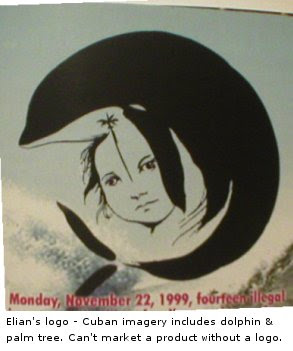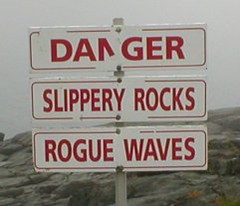Clear and present anger.
Earlier I promised to blog about my last-minute souvenir purchase in Cuba (it very nearly caused me to miss my plane - I hadn't counted on the glacial pace of Visa transactions over Cuban lines). It was at an airport book counter and is titled "Cuba, the untold history". A glance at the cover immediately indicated that this was no run-of the mill bit of sentimentalia as so many of the other books there are, and upon glancing inside I knew immediately it was going to be worth the $16CUC they wanted for it.
 It is an astonishing propaganda piece, a full colour several-hundred-page book listing dozens and dozens of purported terrorist attacks against Cuba, beginning with the Bay of Pigs invasion (which is not identified as a terrorist attack, per se) and running through a litany of alleged attacks by "terrorists of Cuban origin" operating - with impunity, it is alleged - out of the USA in general and Miami in particular.
It is an astonishing propaganda piece, a full colour several-hundred-page book listing dozens and dozens of purported terrorist attacks against Cuba, beginning with the Bay of Pigs invasion (which is not identified as a terrorist attack, per se) and running through a litany of alleged attacks by "terrorists of Cuban origin" operating - with impunity, it is alleged - out of the USA in general and Miami in particular.The allegations and supporting evidence - or lack of same - is all over the place. In one or two cases, declassified CIA documents are cited and photographically reproduced to support these claims; in many, many others, it is just alleged that such-and-such a person "said", "admitted" or "declared" that they'd taken part in these attacks, which include bombings, hijackings of fishing boats and planes, an airplane bombing (Cubana de Aviación Flight CU-455, which blew up between Barbados and Jamaica in 1976 with a loss of 73 lives), murder of Cuban civilians and diplomatic staff, and other incidents, in Cuba and in Cuba-related incidents around the world.
The most horrific allegation other than that of the aircraft bombing is that "terrorists of Cuban origin" imported Dengue Fever into Cuba, resulting in three mysterious simultaneous outbreaks in various parts of the island in 1981. 158 people died, 101 of them children. It is alleged (without supporting citation) that years later in a trial, a "Cuban terrorist" who is identified by name "confessed to having introduced the contagious virus to Cuba". Many pages are devoted to this incident, with copious photos of ill children and statues of angels in a garden devoted to the victims. The book alleges that that old demon the US, "applying the precepts of the blockade, delayed authorization for the sale and transportation to Cuba of the insecticides specified for combating the vector responsible for the disease... Cuba had to purchase them from third countries at an additional cost of millions of dollars and with a vital delay in the arrivlal time in the country, which was, undoubtedly, a key factor in many of the deaths that took place."
Think of the recent Virginia Tech shooting which claimed the lives of 32 mostly-young victims and wounded many more, and its impact in America. Imagine, as a resident of Cuba, experiencing an incident which you were told by your government was a terrorist act, which stole 101 of your children, your babies - how that would resonate. And imagine you've been taught, probably right from school, who to blame.
 The final chapter in the book is taken up with, you may have guessed it, Elián Gonzales, who became such an effective propaganda tool in Cuba that he has his own logo. His "kidnapping" is included as yet another outrage against the Cuban people. You sort of can't believe that the Miami anti-Castro activists didn't see this coming.
The final chapter in the book is taken up with, you may have guessed it, Elián Gonzales, who became such an effective propaganda tool in Cuba that he has his own logo. His "kidnapping" is included as yet another outrage against the Cuban people. You sort of can't believe that the Miami anti-Castro activists didn't see this coming.In the chapter, Elián's father, Juan Miguel, is portrayed as a noble soul who had maintained a cordial relationship with his ex-wife until she was lured out of Cuba (why? why?) by a ne'er-do-well playboy. Elián's mother is both a mother, and, well, dead, so it seems imprudent to blame her. Instead she is presented as being "more to be pitied than blamed", a tragic figure (as she indeed was) in the whole saga.
In an unintentionally funny passage, the book notes that "Following the divorce, and with the child... [Juan Miguel and Elián's mother] continued living in Cardenas, with the brother-sister relationship still intact... until she fell in love with a man who would cost her her life, Làzero Rafael Munero, an unemployed flashy type, a womanizer who learned judo not as part of a physical education program, but rather to fight..."

(Elián's Miami-based great-uncle, who fought to keep him in the US, is represented by a photograph which makes him look so sinister I said to Husband, "He looks like Saddam Hussein in a South Park cartoon!")

Long story short, it became clear through this book, if not through everything else we experienced, that Cubans live in a sort of state of continual siege; that the threat of attack, whether imminent, real, exaggerated, wholly or at least partly manufactured, is a very real presence in their lives, from the omnipresent military presence to propaganda pieces like this book or the documentary I saw on the Bay of Pigs invasion.
We happened to be there on the anniversary of the invasion, and I went back to the resort room and turned on the tv and saw all these older folks reminiscing about their war experiences. It looked like nothing so much as your average History Channel talking-head veteran talk doc about WWII or Korea; but then I realized these were veterans of the Bay of Pigs invasion, remembering the event. Tellingly, the documentary was subtitled in English. ("I was a medic," said an old man who today is head of the Cuban Center for Oncology, or something like that. "I recognized these people we had kicked out of medical school for being bad students! But they had fled to the US and now were invading their homeland in support of the invaders supposedly as medics. I was embarassed.")
At the end of the beach at the resort is a now-abandoned observation post. On the way to the resort we passed a military base, protected with tank traps (I didn't know what they were until I asked Husband.) Men in military uniform turn up at various intersections, although we never actually stopped at a checkpoint, per se. We saw anti-aircraft guns at the airport, and Husband heard shelling practice daily at the resort (my hearing wasn't good enough to catch it). None of these things are secrets - they are part of everyday life in Cuba.
So Brent McKee, who cited the German population's weary unity behind its leadership during the height of Allied bombing, or the spirit of Britain during the Blitz, in WWII, in an earlier comment, is not off the mark at all. Give people deprivation, real fear, and a common enemy to blame both on, and you have a formula not for dissent and revolution, but for stubborn unity.
ronnie



0 Comments:
Post a Comment
Subscribe to Post Comments [Atom]
<< Home